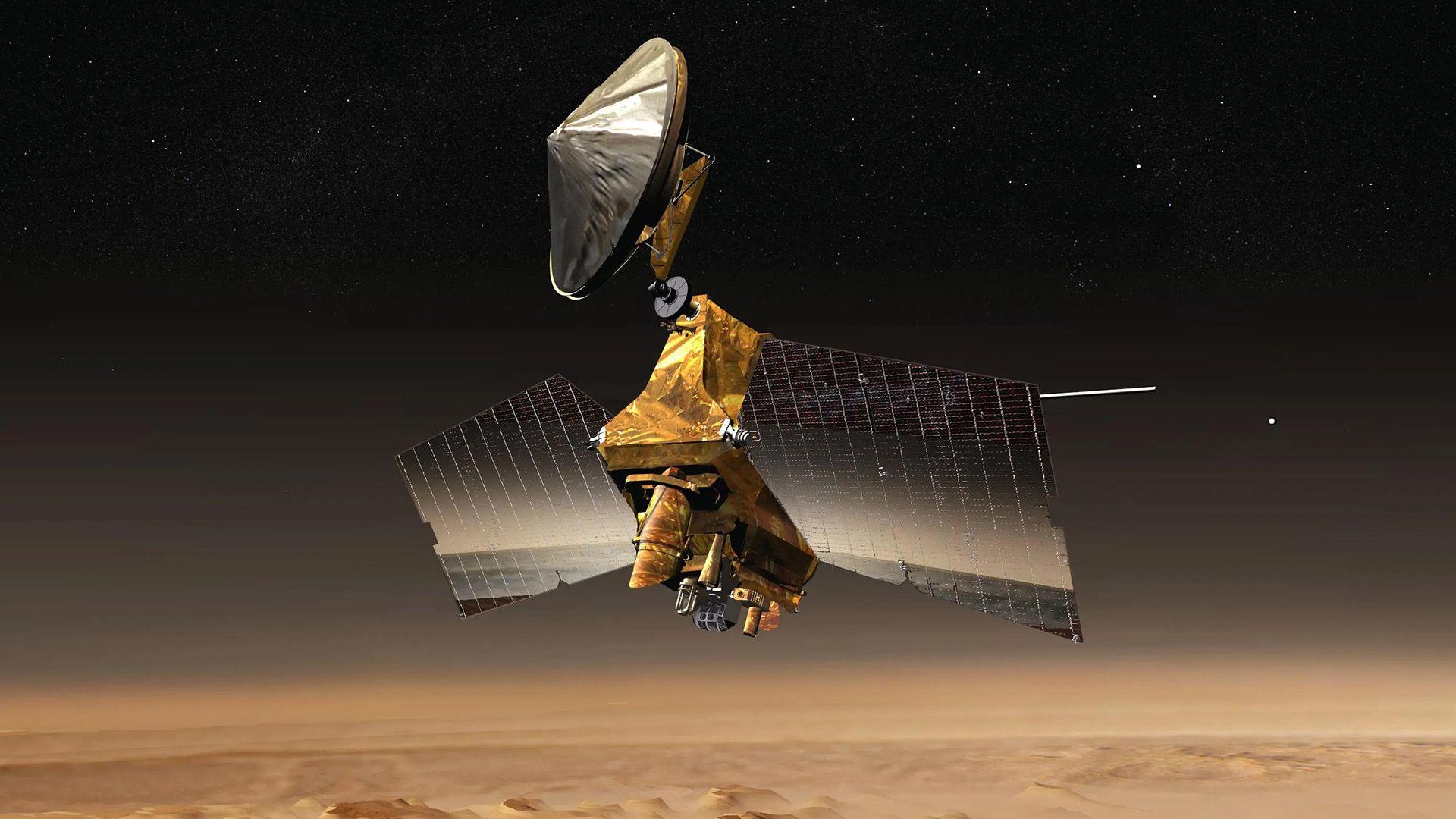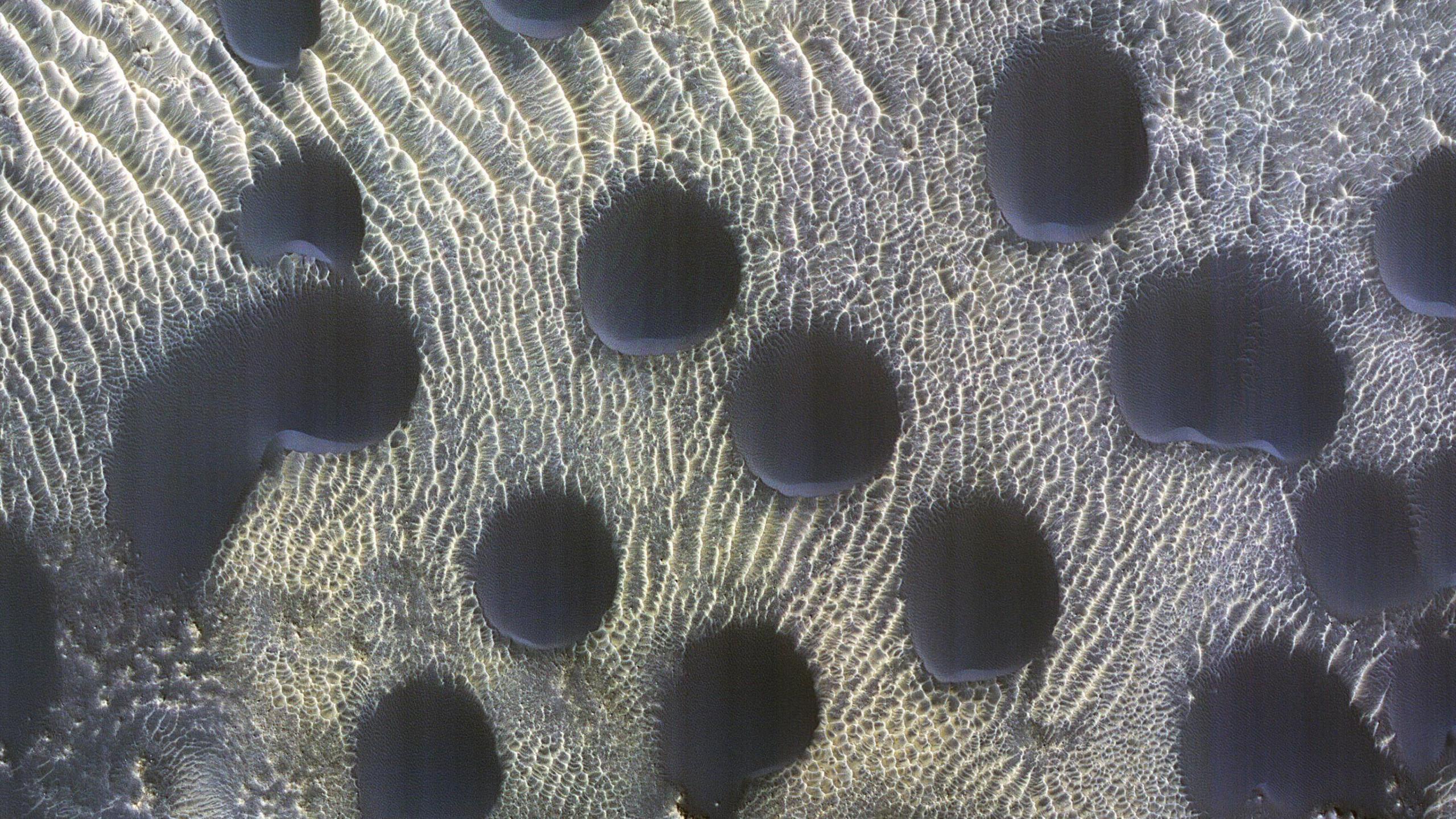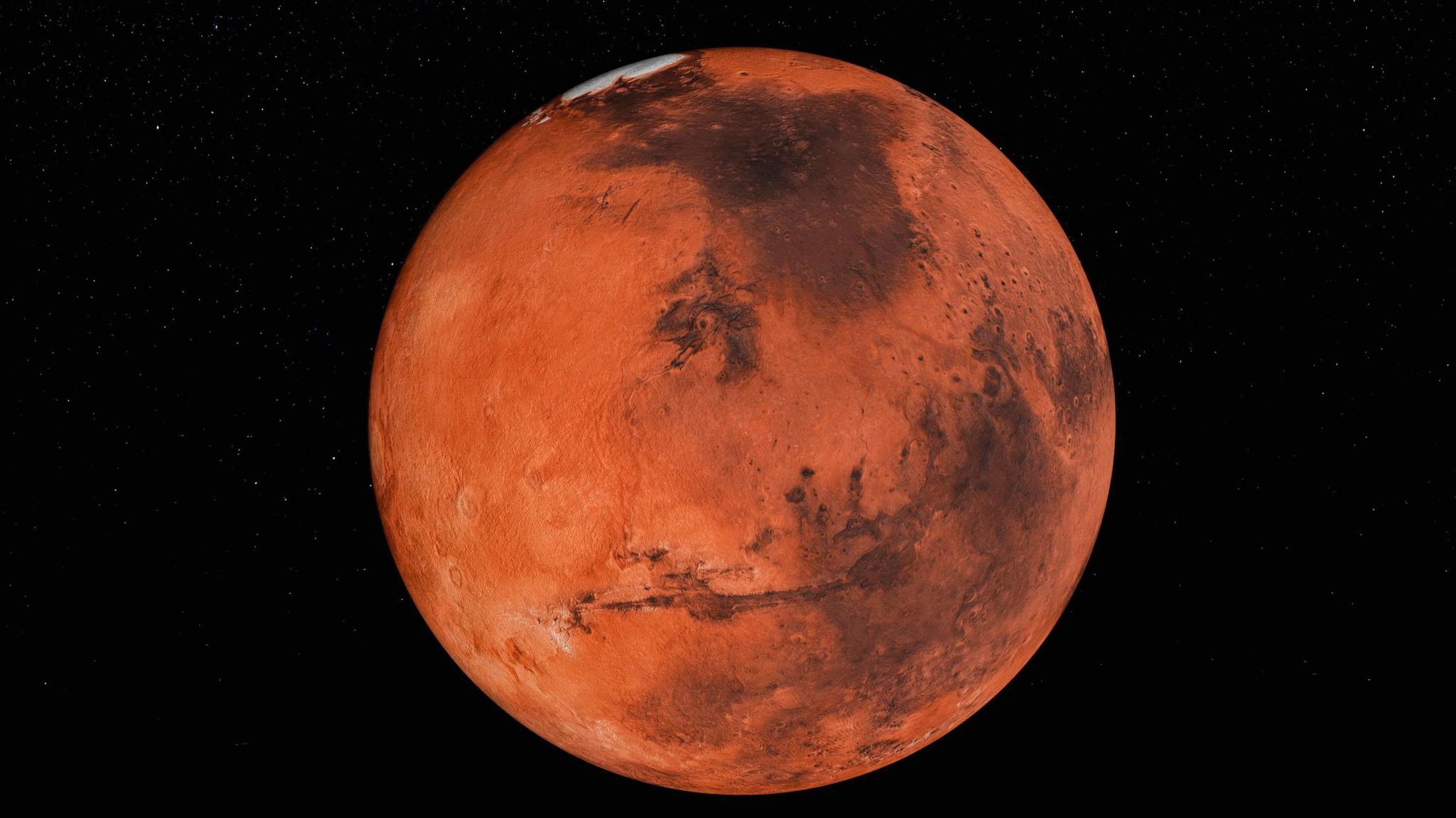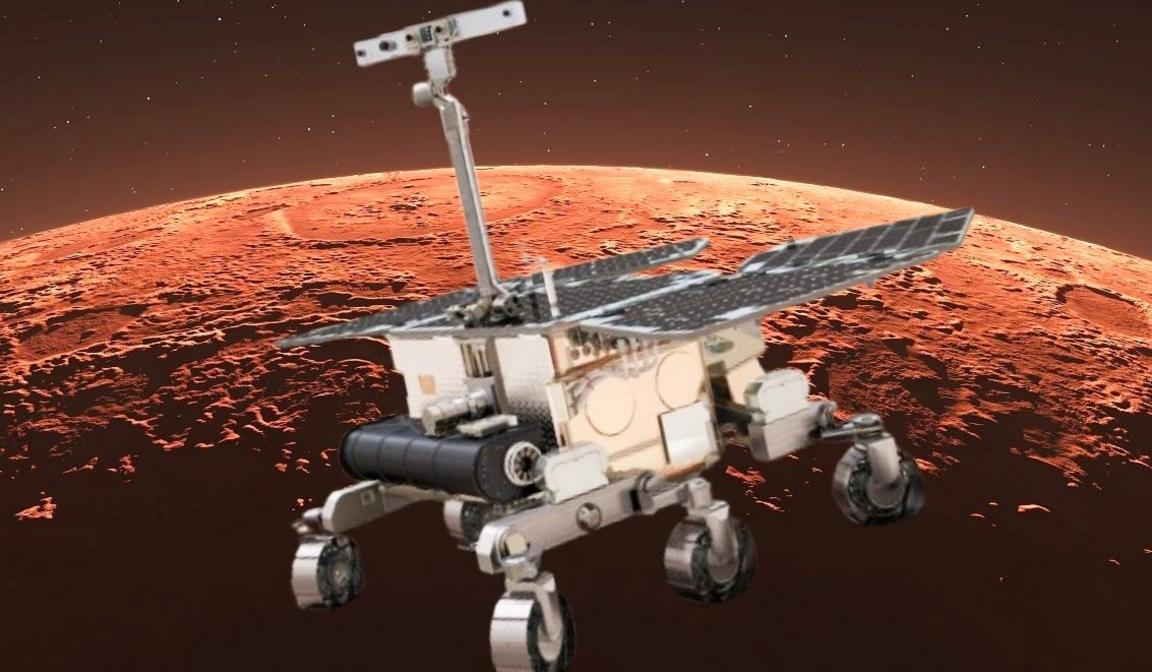Nasa's Mars Orbiter is on a roll

- Published
Computers, phones and consoles can sometimes get a bit out of date and need an update - and Nasa have been 'rolling out' one special update, up in space.
After nearly 20 years in space, Nasa's Mars Reconnaissance Orbiter (MRO) has finally learned how to roll over.
Scientists say the skills will mean it can look deeper and further on its hunt for water and other liquids on the red planet.
But it's not as easy as just giving a command - a regular roll has to be planned weeks in advanced with only one or two large rolls performed once a year.
More from Mars
Frosty dunes on Mars seen by Mars Orbiter
- Published27 March 2021
Nasa rover finds rare crystals on Mars
- Published22 July 2024
Nasa images capture avalanches, craters and whirlwinds on Mars
- Published16 August 2020
What is the Mars Orbiter?

The Mars Orbiter also sends back incredible photos to Earth like this one of circular sand dunes on the planet
The orbiter has been circling Mars since 2006.
It's original mission was to search for evidence of water on Mars' surface, but after it completed that two-year mission, Nasa decided it was doing such a good job they extended it.
It has now spent years doing things like monitoring how Mars changes through the seasons, and searching the planet for places for human-made objects like the Perseverance rover to land.
How does the Mars orbiter roll?

Can you spot the tiny Mars orbiter next to the red planet? No, neither can we - it'd be way too small to see.
Teaching the orbitor to get better at rolling isn't as simple as you might think.
MRO could always move a bit side to side but not too much because it has lots of different scientific instruments on board.
These don't all point the same way, so when MRO moves to focus one instrument on one thing, the other instruments can go out of whack.
Experts have compared it to turning your head to look at something while trying to hear or smell something, somewhere else, at the same time.
So to do a successful and useful roll the computer had to given a complex set of instructions to follow so everything could still work together.
The plan isn't to do too many of these stunts in but it shows that even after more than ten years in space, Nasa are still finding new jobs for their travelling machines, far off in the solar system.
More space stories
- Published20 May

- Published21 December 2024

- Published16 January

